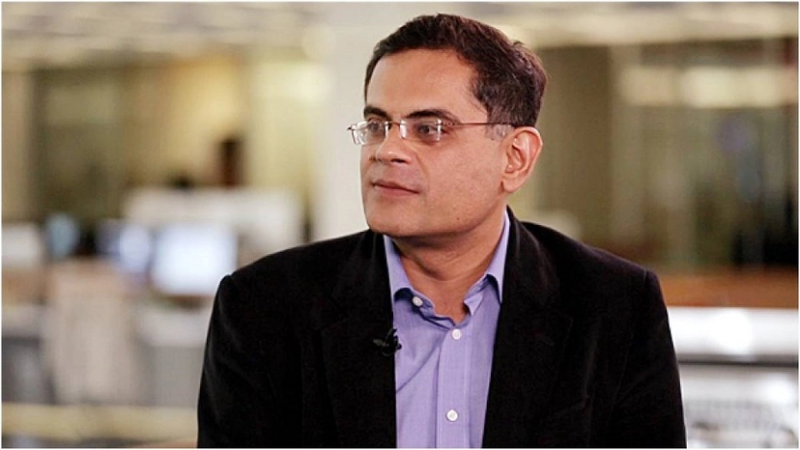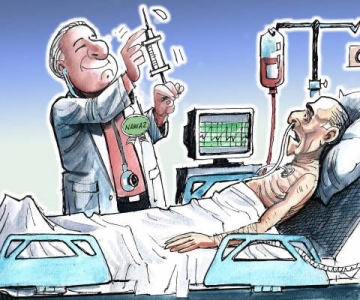It was not the first time that the watchdog, PEMRA, whose members are bureaucrats, media professionals and members of civil society, was in the news in recent months. PEMRA has banned Khan three times from TV channels since he was ousted from power in April 2022.
Nearly two hours after the third ban, the media regulator suspended the licence of ARY News, a private news channel, for broadcasting one of Khan’s speeches. The former Prime Minister, who would be later arrested and sentenced to three years in jail on corruption charges, challenged the ban in court.
With elections in Pakistan due by early 2024, PEMRA’s role in Pakistan’s public sphere is becoming increasingly important. I spoke with Raza Rumi, one of the most influential journalists in the country, to learn more about the impact the watchdog’s decisions could have in the next few months.
Q. It’s unusual for a media watchdog to issue blanket bans, especially for a popular politician like Imran Khan. How are these bans implemented? Do we see news about him on screen at all? Are his images shown?
A. The way they implement the bans is pretty ridiculous. Obviously, one cannot ignore all the news about someone as politically important as Imran Khan. So, they do give news about him but they don’t mention him by name. They refer to him as the chairman of the political party PTI or as Qasim’s father [the name of Imran Khan’s son is Qasim]. They say, “Qasim’s dad did this… Qasim’s dad said that.” But the channels refrain from showing his speeches live.
Q. The latest ban is also on 11 other figures who are considered close to Khan. Is this kind of ban by a media watchdog unique? Do such bans have a precedent?
Sometimes it is brazen censorship, like in the cases you are mentioning. But on other occasions, it is a means of controlling the channels, which are often fined, questioned or slapped with notices for their programming.
Khan’s ban is not unique. Two major political leaders were subjected to the same ban before him.
The first one was Altaf Hussain, a leader of a Sindh-based party called MQM [Muttahida Qaumi Movement]. In 2015, Hussain made a very controversial speech about the Pakistani army and PEMRA slapped him with a notice. He addressed his followers live from London and the speeches were telecast on all channels. He was banned, the case went to court and the courts upheld the ban.
The second ban was on Nawaz Sharif, who was elected Prime Minister three times. Sharif was banned from media screens in 2018 when he alleged that the military had rigged the elections in Khan’s favour.
Sharif was fired as the Prime Minister by the Supreme Court on corruption charges. Then, he was booked in other cases and PEMRA made this strange rule that a convicted person must not be given airtime. This is a controversial argument because the reality is that even convicted people have a right to be heard. Nawaz’s cases had been pending before other courts and some were political cases.
These bans show us the domination of Pakistan’s military establishment over media programming. But even more sadly, they show the weakness of Pakistan’s civil society that allows this to happen unabated.
Q. Do political parties keep a check on such brazen use of power?
This is now new. When Sharif was banned, Khan’s party totally supported that. When Hussain was banned, all other political parties, except for a few individuals here and there supported it. That is the tragic part.
When the military decides on these bans, we expect the political parties to resist them. But actually, they end up becoming a part of this censorship agenda.
Q. What happens if news organisations don’t adhere to the ban?
A. PEMRA issues a notice to all channels, sometimes in writing and sometimes by calling their managers. This time, it’s been published that there was a meeting with the owners of the main TV channels in which military officials were also present.
TV executives were told to keep Imran Khan off air and the ban became even more serious in May after Imran Khan’s party protested against the military. They burned the core commander’s house in Lahore and entered the army HQ in Rawalpindi, and the military used all its powers to come down hard [on him].
Q. Is TV still the main source of news for most Pakistanis even as officials exercise so much control over it?
A. Yes, TV is still huge. But social media is increasingly taking over. When Imran Khan was banned, he did two things. Firstly, he took to TikTok and set up an account which earned millions of followers. Then, he started a daily broadcast on YouTube, where he appears more than once a day sometimes.
Q. How is the online space regulated in Pakistan?
A. In 2016, the Parliament passed the Prevention of Electronic Crimes Act (PECA). Under this law, social media posts have become liable for criminal prosecution and this has given untrammelled powers to the Pakistan Telecom Authority (PTA), an agency regulating telecommunications in the country.
Under Khan’s government, this agency brought in further draconian measures. However, these rules were challenged by civil society. As a result, the High Court struck down some of the provisions of the law and also said that the rules have to be formed after a proper process.
As of now, no social media bans have taken place in Pakistan. The internet is a relatively open and free space. It is also quite difficult to ban platforms like YouTube. Pakistan did try to ban YouTube once over an amateur video on Prophet Mohammad’s life. But the government didn’t manage to take down that particular video and created chaos before the courts intervened and lifted the ban.
At Naya Daur, we have an Urdu website that was taken down in both 2019 and 2020. But it was restored after we removed some of the articles. So, online spaces are not 100% safe after all.
Q. Blanket bans are always complicated, but have you felt there was a situation when the regulator was justified in banning someone or something? Do TV channels go overboard with terrorism coverage, for instance?
A. Pakistan underwent the worst wave of terrorism from 2006 to 2015. There were attacks by suicide bombers almost every day. At that time, the media was newly deregulated and it had not developed rules and guidelines.
They began to give inordinate coverage to suicide bombers, showing their heads and body parts, and that was obviously very disturbing for viewers. At the end of the day, a lot of these terror groups want glorification through the media. So, it was giving that kind of oxygen, and a parliamentary committee intervened and asked rules to be made.
People have to be informed and I am against blanket censorship. But media outlets have to exercise discretion in terms of showing brute violence and other such mentions.
Source: https://reutersinstitute.politics.ox.ac.uk



